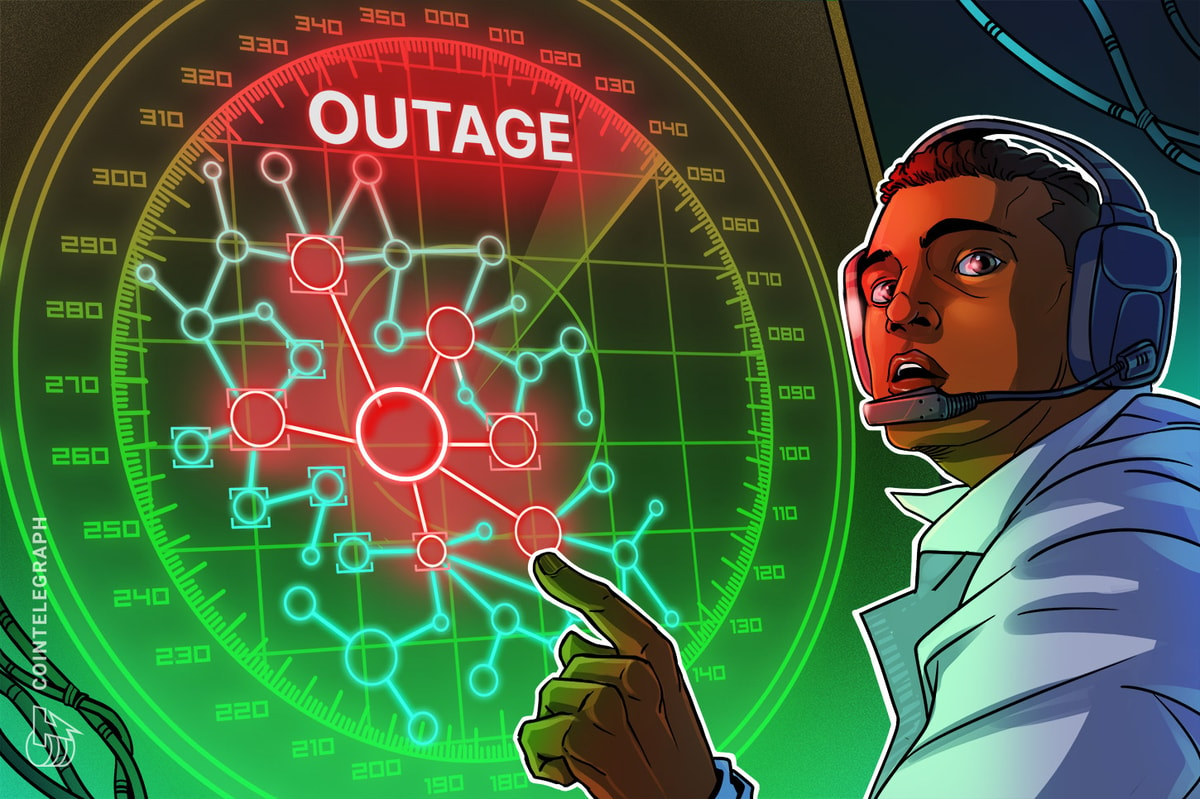Coinbase and Robinhood were amongst several major platforms hit by an Amazon Web Services (AWS) data center outage on Monday, highlighting the risks posed by reliance on centralized cloud providers for critical financial infrastructure.
Coinbase, the third-largest centralized cryptocurrency exchange (CEX) by trading volume, was hit by an AWS data center outage that reported “increased error rates and latency” for multiple AWS services within the Northern Virginia region.
The AWS outage caused Coinbase's mobile app to crash, and several other users reported problems logging in, placing orders, and withdrawing funds. The Base app also malfunctioned.
AWS service health. Source: Health.aws.amazon
“We can confirm that global services and features based on US-EAST-1 have also been restored. We proceed to work on a full resolution and can provide updates as we have now more information to share,” AWS wrote in an update on Monday, about three hours after the outage was first reported.
“We are seeing early signs of recovery as some users are actually in a position to access and use Coinbase services,” Coinbase wrote in a post on Monday, adding that “the team continues to be working on this issue as a top priority.”
Coinbase status report. Source: status.coinbase.com
While no other crypto exchanges reported outages, several users of stock trading platform Robinhood also reported delays in trade execution and issues with the appliance programming interface (API).
“Amazon down, Robinhood down, Reddit down, McDonald's down, Fortnite down,” crypto trader Kushy wrote in a Monday X post.
Source: By Wildo
The crash got here six months after an earlier AWS outage affected trading services on no less than eight crypto exchanges, including Binance, KuCoin, MEXC Coinstore, Gate.io, DeBank, Rabby Wallet and Weex, Cointelegraph reported in April.
Amazon cited “connectivity issues” as the explanation for the April outage, which affected no less than 12 of its services.
The Amazon AWS outage highlights the necessity for a decentralized cloud infrastructure
AWS provides cloud infrastructure for centralized exchanges that may handle high transaction volumes with low latency on trade orders. It is utilized by a few of the largest exchanges including Binance, Coinbase, BitMEX, Huobi, Crypto.com and Kraken.
The recent outage has renewed calls for the event of decentralized alternatives that eliminate single points of failure.
Layer 1 blockchain Vanar Chain has built a blockchain-based cloud infrastructure to cut back this dependency. Two weeks after the AWS outage in April, Vanar launched Neutron, an AI-native blockchain layer that provides data compression ratios of as much as 500:1. According to Vanar CEO Jawad Ashraf, the system allows users to store files entirely on-chain without depending on third parties.
“This opens up completely latest possibilities: from simply storing a file entirely on-chain without counting on third parties, to querying and verifying the actual information within the file,” Ashraf told Cointelegraph.
The Internet Computer Protocol is one other blockchain-based alternative that provides decentralized computing, storage and hosting across global nodes. Other Web3-based infrastructure providers include Filecoin for data storage, Akash Network for decentralized computing, and Render Network for GPU-based computing services.

